global crisis
UN expert Irene Khan sees "global crisis" of freedom of expression
Deadly attacks on journalists in Gaza and double standards and discrimination against those advocating for Palestinian rights have created a global crisis of freedom of expression, a UN expert said.
Presenting her report to the General Assembly, Irene Khan, Special Rapporteur on freedom of opinion and expression, highlighted the widespread violations of freedom of expression arising from the conflict in Gaza, including the killing of journalists in Gaza, the crushing of protests worldwide against the carnage, the muzzling of Palestinian advocacy and the upsurge of disinformation, misinformation and hate speech online and offline.
“No war in recent times has affected freedom of opinion and expression so seriously or so far beyond its borders,” the expert said.
“Rarely have we seen such extensive patterns of unlawful, discriminatory and disproportionate restrictions on freedom of expression by States and private actors, especially in western democracies,” she said.
When the best universities and cultural institutions in western countries collude with their States to intimidate, isolate and silence dissenting voices on the Palestinian situation, they undermine their own artistic and academic freedoms and diminish the vibrancy of their own democracies, Khan said.
“The targeted killings and arbitrary detention of journalists, destruction of press facilities and equipment in Gaza, the denial of access to independent media, the banning of Al Jazeera appear to indicate a deliberate strategy by Israeli authorities to silence critical reporting and obstruct documentation of possible international crimes,” the expert said.
Why have States that promote themselves as media freedom champions remained silent in the face of such unprecedented attacks on journalists in the occupied Palestinian Territory?, she asked.
“The repression of media in Gaza and the West Bank is an attack on the right to information of people around the world who want to know what is happening there,” Khan said.
“While Jews, Jewish Israelis and Palestinians have all been targeted by disinformation, misinformation and hate speech on social media, the companies have tended in their content moderation to show a bias against Palestinian expression,” she said.
“Online and offline, international standards are being distorted and misinterpreted to equate criticism of Israeli Government policies and Zionism with antisemitism, which is racial and religious hatred of Jews and must be unequivocally condemned,” the expert said.
“Israel is a State. Zionism is a political ideology. Under international human rights law on freedom of expression, no State or political ideology can be shielded from criticism.”
The Special Rapporteur urged all States, companies and private institutions to refrain from discrimination and uphold freedom of expression equally for all persons, in line with international standards. She called on all States to act on the concrete recommendations in her report.
“Freedom of opinion and expression enjoyed on an equal basis by all sides is an invaluable tool for fighting hate, encouraging mutual respect and dialogue, for preserving democracy at home and promoting peace abroad,” Khan said.
1 year ago
PM Hasina puts five points to reshape global financial system to tackle ongoing crisis
Prime Minister Sheikh Hasina on Tuesday said the world financial system needs fundamental shift to address the ongoing financial crisis across the globe.She put forward five points in reshaping the financial system while speaking at the High-level Roundtable titled “Towards a Fair International Financial Architecture” held at UN Headquarters here.The points are:First, MDBs, IFIs, and private lending agencies must re-align their priorities and mobilize additional funds for SDG implementation and climate action.Second, funds need to be made available for developing countries at low-cost, concessional rates, and preferably in higher quantities of grants;
Read: PM Hasina honoured for her UN-recognised community clinic model in BangladeshThird, all lending instruments should have disaster clauses to allow vulnerable countries to absorb shocks during crises;Fourth, fair and effective debt relief measures need to be given priority based on coordination and transparency among creditors; and,Fifth, instead of quotas, SDR borrowing limits should be based on needs and vulnerability, supported by easy lending processes.“We recognise that the international financial architecture needs urgent reforms. But agreement on the nature and extent of the reforms remains lacking. Political will is important,” Hasina said.She mentioned that international public finances are found to be costly and out-of-reach.
Read: Latest ADB report predicts a better year for Bangladesh in FY2024“We try to stay clear of high-interest-rate loans to avoid debt distress. Bangladesh has never defaulted on its loan repayment, and we hope to maintain that record,” she said.Agreeing with the UN Secretary General that the global credit rating system must be reviewed, she said that the current rating system further restricts access to funds for many low- and middle-income countries.“The limits on their voting rights, quotas, and representation in MDBs and IFIs also undermine their bargaining power,” she said.Sheikh Hasina said it is critical for the international financial architecture to be inclusive and representative of the Global South.“Development narratives from countries like Bangladesh demonstrate that we can do our part. It is time for the international financial system to respond to our expectations,” she said.Noting that Bangladesh has long been credited for its sound macro-economic management, the PM said, “Our economy grew by 8.15pc just before the pandemic.”She said the country’s economy was put under stress due to the Covid pandemic and Ukraine war.
Read: Promote community clinics in developing world: PM Hasina urges dev partners“Despite we’re still maintaining 6-7pc GDP growth, we are trying to curb inflation, manage the balance of payments, and maintain our development expenditures. There are evident strains on our fiscal and policy space,” she added.She said her government reduced the poverty level from 41.9pc to 18.7pc and the extreme poverty level from 25.5pc to 5.6pc in the country.Also on Tuesday, Hasina held bilateral meetings separately with Sri Lankan President Ranil Wickremesinghe, Timor-Leste President Dr Jose Ramos-Horta and Denmark Prime Minister Mette Frederiksen at the bilateral meeting room at the United Nations Headquarters.“Various aspects of the issues related to interest of Bangladesh were discussed during the meetings,” Foreign Minister AK Abdul Momen while briefing reporters.
He said Director General of the International Atomic Energy Agency (IAEA) Rafael Mariano Grossi, paid a courtesy call on Sheikh Hasina at the latter’s place of residence on the day.During the meeting, the prime minister put emphasis on the peaceful use of nuclear energy and reiterated Bangladesh's steadfast commitment to nuclear disarmament and non-proliferation, said Momen.Sheikh Hasina recalled that Bangladesh ratified the Nuclear Non-Proliferation Treaty and Comprehensive Test Ban Treaty after she formed the government for her first term.She expressed her sincere thanks to IAEA for providing technical support to Bangladesh Atomic Energy Commission and Savar Nuclear Reactor Research Establishment.Meanwhile, the prime minister highlighted the progress of Bangladesh in developing adversity-tolerant and high-yielding crop varieties developed by Bangladesh Institute of Nuclear Agriculture (BINA), said the FM.
2 years ago
World Bank spring meeting begins in Washington today, announcement on $50bn allocation to face global crisis likely
The spring meeting of the World Bank Group and the International Monetary Fund (IMF) begins today (April 10, 2023) in Washington DC, USA.
This meeting is likely to announce an allocation of USD $50 billion from the organisations to face the global crisis.
The seven-day meeting will continue till April 16 at the headquarters of the IMF and the World Bank Group in Washington.
Read More: Bangladesh's GDP growth expected to pick up to 6.2% in FY2024: World Bank
According to the Ministry of Finance, a delegation of six members is participating in the spring meeting led by the Governor of Bangladesh Bank, Abdur Rouf Talukder.
Along with the governor, Bangladesh Bank Chief Economist Habibur Rahman, Finance Secretary Fatima Yasmin and Additional Secretary of Finance Department Rehana Parveen and two officials from the Economic Relations Department (ERD) are participating in the meeting.
Apart from this, three more officials from the Bangladesh Embassy in the United States are expected to join the meeting along with the Bangladesh team.
Read More: World Bank agrees to finance for development of metro rail-centric communication
Generally, such meetings are led by the finance minister. However, Finance Minister AHM Mustafa Kamal is not joining the meetings this time.
At this meeting of the World Bank Group, the International Bank for Reconstruction and Development (IBRD), a subsidiary of the organization, may announce an additional financing of $50 billion to deal with the global crisis.
Being a member of IBRD, Bangladesh will also get the benefit of this financing, the finance ministry sources said.
Read More: New World Bank leadership must put Climate Action as top priority: V20
The World Bank's spring meeting will be chaired by President of France Emmanuel Macron, and Prime Minister of Barbados Mia Amor Mottley. They will be joined by world leaders, academics, development experts and climate experts.
Besides, finance ministers, central bank governors of 189 World Bank member countries will participate.
2 years ago
Commerce, Home ministries coordinating govt's tough stance on price gouging ahead of Ramadan
This year's Ramadan is still a couple of days away, but a segment of traders already appears eager to increase profit margins by raising the prices of different commodities.
The government of Bangladesh however claims to be on to them, and has taken various initiatives to keep the market stable during the holy month.
Prime Minister Sheikh Hasina has directed officials to increase surveillance across the country so that dishonest businessmen cannot make excessive profits. She particularly instructed the field-level administration to be on alert. The Commerce Ministry has said it will keep an eye on the traders so they cannot destabilize the market by creating any artificial crisis.
Even detectives from the law enforcement agencies under the Home Ministry have been instructed to keep their eyes open so that unscrupulous syndicates do not create an artificial crisis in Ramadan.
Read: Dates, fruits to be more costly during Ramadan due to LC opening crisis
In the past, it was noticed that traders increased the prices of goods several times before the start of market supervision ahead of Ramadan. Just before Ramadan, the demand for items like edible oil, sugar, pulses, chickpeas, spices, and so on increases. Traders take this opportunity and raise the prices of in-demand items. It is no different this time.
“Ramadan is a few days away. Like last year, I have bought sugar, pulses, and chickpeas at a much higher price. Every year the same thing happens. There is also an upswing in the vegetable market,” Wahid Fakir, a resident of Bhatara New Market, told UNB.
The prices of sugar, oil, ginger, onion, and other essential goods have all increased in the last week. Vegetables, fish, and meat prices are also going up. Although there is also no shortage of edible oil in the market, daily essentials are selling at an increased price rate every week.
"This year we are already on alert from before. No one will be spared, if there is an artificial crisis in the market. We, the local administration, including the law enforcement agencies, and consumer rights protection directorate, will continue to monitor the market with mobile courts,” Commerce Minister Tipu Munshi told UNB.
Read: People forced to return home with bags half full due to higher prices of chicken, meat, fish
“As preparation for Ramadan, I have had meetings with businessmen one to two months ago. That's when we asked them to increase imports. In particular, instructions have been given so that the banks open the LCs quickly for the import of food products,” he said.
“The government has taken all kinds of necessary initiatives to keep the prices of goods under control during Ramadan. We have warned the traders about the preparations in advance this year. Controlling commodity prices was a challenging affair at this time of global crisis and rise in dollar rate,” he also said.
“Despite this, dollars have been provided for import of all food products commonly used in Ramadan. Besides, the ministry has requested the NBR to reduce the duty and VAT to reduce the prices of commodities like sugar and edible oil,” said the minister. “In addition, we are taking several other programmes to control the prices of goods during Ramadan. Apart from the family card allocated for 1 crore families, sugar and chickpeas will be sold in truck-sales in Dhaka and divisional cities. NBR has also extended the time for import of rice by three more months."
“Hopefully, the prices of goods will be stable during Ramadan. The government's preparation in this regard is good enough,” added Tipu Munshi.
Read More: Have enough stock, no scope of price hike during Ramadan: Tipu
Asked about the role of law enforcement agencies in keeping the market stable during Ramadan, Home Minister Asaduzzaman Khan said, "The law enforcement agencies have been instructed to prevent the rise in the prices of goods.”
“Detectives have already been instructed to keep an eye so that unscrupulous syndicates do not create any artificial crisis around Ramadan and make the market unstable. Several strict steps have been taken, including conducting mobile courts, to control the prices of consumer goods by suppressing syndicates,” he said.
“Various strategies are being formulated to prevent artificial crises in the market and to take action against those who stockpile goods. Along with the police, the law enforcement agencies and consumer rights department, including RAB, will be active in the field, the intelligence surveillance will also be increased,” he also said.
Cabinet Secretary Mahbub Hossain said, “If there is an abnormal situation in the market, we can enforce the law. Every deputy commissioner has been told about this. They will monitor it very strictly. We will also monitor from here.”
Read More: Make marginal profit in Ramadan, Munshi urges businessmen
2 years ago
Make sure people don’t suffer amid global crisis: PM Hasina urges local representatives
Prime Minister Sheikh Hasina on Wednesday asked the public representatives of the local government bodies to play their due part so the people don’t suffer amid global crisis.
"We’re trying our best to make sure the people of our country won’t have to suffer amid the global crisis. As elected representatives, you have also some responsibilities. You have to discharge the duties," she said.
The premier made the call while addressing the oath-taking ceremony of the newly elected chairmen and members of two district councils –Noakhali and Chapainawabganj Zila Parishads—at her office.
She administered the oath to the two elected chairmen -- Abdul Wadud Pintu in Noakhali Zila Parishad and Md Ruhul Amin in Chapainawabganj Zila Parishad.
Read more: 100 highways opened today are gifts for the nation in month of victory: PM
Besides, LGRD Minister Md Tazul Islam administered the oath to the newly elected members of the Zila Parishads.
Hasina stressed the need for boosting food production by bringing every inch of land across the country under cultivation to face the looming food crisis.
"If all the arable lands across the country can be brought under cultivation, there will be no crisis in the country," she added.
In this regard, the PM sought cooperation from the elected representatives to create public awareness to grow their own foods.
She said the prices of every commodity, particularly imported items, have soared across the world.
She asked the people to exercise austerity in every sector and make savings to overcome the global crisis.
She asked the local body representatives to make proper use of the local development fund and quality works of the local projects to ensure balanced development in every area of the country.
Read more: Ensure security to lives and property of people living in bordering areas: PM to BGB
"I urge you all to work for the welfare of the people as elected public representatives," she said.
The PM asked the local representatives to prepare a list of the homeless and landless people irrespective of political affiliation to accomplish the government’s target to ensure abodes for all homeless people of the country.
Some 35 lakh landless and homeless people have so far been provided with houses across the country free of cost, she added.
The elections to two district councils were held on November 14 and 28 last.
Earlier the newly elected chairmen and members of 59 Zila Parishads were sworn in on November 14.
3 years ago
Keep wheels of economy running amid global crisis: PM urges industrialists
Prime Minister Sheikh Hasina on Sunday asked the industrialists to keep their factories running to ensure that the people of Bangladesh don’t suffer amid the global economic recession.
“Many countries have announced that they are suffering from economic recession. But I can say that Bangladesh is still not in such a bad condition,” she said. The government is taking measures to keep the wheels of the country’s economy running.
The premier said this while inaugurating and laying foundation stones of 50 industrial units and commercial infrastructures in different economic zones on the occasion of the golden jubilee of the country’s independence.
She unveiled the plaques at an event arranged by Bangladesh Economic Zone Authority (BEZA) at 'Bangabandhu Sheikh Mujib Shilpa Nagar' in Mirsarai of Chattogram, joining it through a videoconference from her official residence Ganabhaban.
“I would like to request the industrialists to continue efforts to meet the demands of the country’s people by running their industries,” she said.
She reminded the industrialists of the days of corruption and the harassments they used to suffer during the rule of Bangladesh Nationalist Party (BNP) during 2001-2006.
“Now there is no Hawa Bhaban anymore. You don’t have to make payments of Hawa Bhaban or run from door to door to get your work done,” she said.
Hawa Bhavan, better known as a second centre of power during then premier Khaleda Zia’s rule, used to be run by her son BNP leader Tarique Rahman.
said her government has been able to bring the country under all sorts of rules and disciplines. The government is developing a business-friendly atmosphere and providing all sorts of scopes and facilities for businesses, she said.“You should work for the wellbeing of the country’s people. We will extend support as much as you work for the welfare of the people. But don’t do anything that would lead the people to suffer,” she said.
The PM said the prices of commodities in the international markets and transport costs soared due to the Ukraine-Russia war, sanctions and counter-sanctions.
Read more: Engage people to enhance capacity: PM Hasina to Firefighters
PM Hasina referred to Vision-2021 (the political manifesto of the Bangladesh Awami League to develop Bangladesh). “Bangladesh is a changed Bangladesh now. Those who have eyes can see it,” she added.
Calling her Awami League government a business-friendly one, the PM said her party is putting importance to the private sector, industrialization and increasing agricultural production for the country’s development.
She urged the entrepreneurs, particularly the youth, to come forward to new sectors like agricultural and food-processing industries as Bangladesh has potential to export processed food items.
The PM also briefly cited the opportunities created by her government for the youths and women to develop as entrepreneurs.
She said all including the youths and women would have to work together to transform Bangladesh into a developed and prosperous country by 2041.
“I would like to ask our young generation not to run after for only. Rather you develop your own industries and businesses,” she added.
The prime minister stressed the need for a planned industrialisation by protecting the arable lands to ensure economic prosperity.
“We’ll have to continue the food production and also develop industrial zones at the same time…. No industry can be developed indiscriminately…. the arable lands and triple-crop lands can in no way be destroyed,” she said.
Read more: Grow more food, keep enough stock to avert any crisis: PM Hasina
The premier said her government is setting up 100 economic zones in different parts of the country and has already approved 97 economic zones. Of them, 28 economic zones are currently under development.
She said some 10 million people would be directly and indirectly employed in the economic zones. The government has set a target of goods production and export earnings worth around US$ 40 billion from the zones, she added.
In the economic zones, 29 industrial establishments are already in commercial production and 61 others are under construction. So far, some 45,000 jobs have been created in the economic zones and about US$ 4 billion have been invested in the private economic zones.
Besides, the proposed investment in all economic zones is more than US$ 26 billion.
Read more: Shun luxury and serve the people: PM Hasina tells elected Zila Parishads
Among the 50 industrial or business establishments, four industrial units have started production at Bangabandhu Sheikh Mujib Shilpa Nagar while eight others at different privately-run Economic zones.
Besides, Karnaphuli Drydock Special Economic Zone, the administrative buildings of Bangabandhu Sheikh Mujib Shilpa Nagar (BSMSN), Jamalpur Economic Zone, Srihatta Economic Zone and Sabrang Tourism Park, 20-kilometre Sheikh Hasina Sarani, 230-KVA gridline and substation at BSMSN were opened.
Moreover, the foundation stones of 29 industrial units in different economic zones and a water treatment plant having 50 million litres per day (MLD) capacity in the BSMSN were laid.
Land Minister Saifuzzaman Chowdhury, PM’s Private Industry and Investment Adviser Salman F Rahman, Chattogram-1 MP Engineer Mosharraf Hossain and President of Bangladesh Economic Zone Investors Association and also vice chairman of Bashundhara Group Safwan Sobhan also spoke at the function.
BEZA Executive Chairman Sheikh Yusuf Haroon delivered the welcome speech.
3 years ago
Bangladesh’s exports worth $4.60bn in Aug, up by 36.18%: EPB data
Despite the ongoing global crisis and inflation, Bangladesh exported over USD $4.6 billion worth of goods in August with a record 36.18 percent growth.
Bangladesh's export worth in August also exceeded the set target. The export target for the second month of the current financial year (2022-23) was $4.3 billion, Export Promotion Bureau (EPB) revealed the data today (September 4, 2022).
According to the statistics, the export earnings growth of Bangladesh has reached to 25.31 percent at the end of the first two months of the current financial year. The total export in two months was $8.59 billion, which is 4.52 percent over the target.
Also read: All export-oriented industries should get equal facilities: Salman F Rahman
According to EPB, in FY2021-22, goods worth $3.38 billion were exported in August. Compared to the last financial year, $1.22 billion more in exports have been made this year.
On the other hand, in July, the first month of this fiscal year, the export of goods worth Tk $3.98 billion was 14.72 percent more compared to the same period of the previous year.
Readymade garment products, home textiles, and other apparel products have played a significant role in exports as always. Garment exports in July and August were worth $7.11 billion. The growth is 26 percent.
Read: Exports to China can grow with extension of duty-free access to 380-plus new products
At the same time, the export of leather and leather products was worth $22.32 crore. The growth is about 28 percent. And the export of jute goods was $15.66 crore, where the growth is about 23 percent.
3 years ago
Govt focuses on food security in new action plan amid global crisis
The government has worked out an action plan for 2022-23 fiscal for the agricultural sector to ensure food security as the world faces pressure in food production due to COVID-19 pandemic and Russia-Ukraine war.The plan has been worked out in line with the National Agriculture Policy 2018, Agricultural Extension Policy 2020 and 8th Five Year Plan, according to an official document.The main aspects of this action plan are to ensure country’s food security through increased production of all types of crops including paddy and maize; innovate adverse environment-tolerant crop variety and technology and to roll it out quickly, and develop and enhance the quality of their seeds using biotechnology, said the document obtained by UNB this week.
Also read: Flood waters receding again in Sylhet but food, water crises persistThe document highlighted optimum use of surface water and solar- powered irrigation, promotion of the production and application of organic fertilizers to safeguard soil health and issueing smart cards to all farmers in the action plan.
3 years ago
We need to be willing to take the bull by the horn: Saima Wazed
Saima Wazed Hossain has said ensuring that women are protected during this global crisis needs a solution which is based significantly on an understanding of the culture where the woman belongs; and importantly that the biased social and economic structure ensures they are impacted even more adversely.
5 years ago
International Day on the Elimination of Conflict-Related Sexual Violence: Standing with Survivors Today and Every Day
The thing about a global crisis like COVID-19 is that people often think of it as a “great equalizer”, it affects the whole world and somehow makes everyone suffer equally. When people living in peaceful countries were hit by COVID-19, they thought that they finally experienced the suffering they always thought was reserved for people who live in less fortunate countries who experience this regularly. They could not be more wrong.
5 years ago

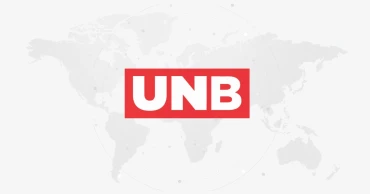
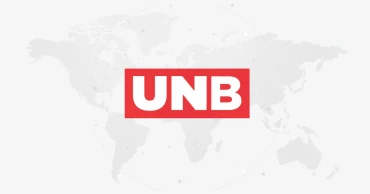
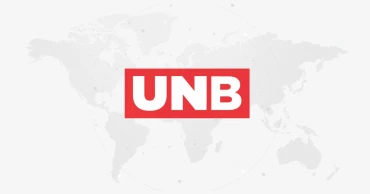
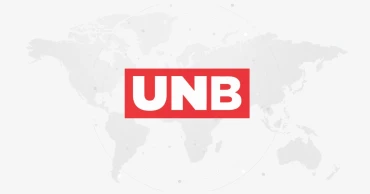
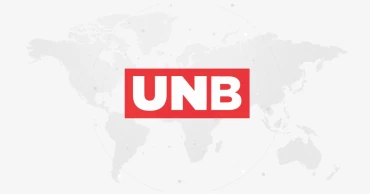
.jpg)
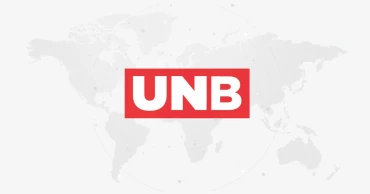
.jpg)







